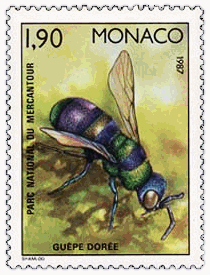A community of insect herbivores has established on eucalyptus species in California following their introduction from Australia. A number of the species are under complete or partial biological control. A response to introduction of additional pest species into the complex has been the application of systemic insecticides to infested trees. Natural enemies that have been introduced to control the various pest species feed on the nectar of treated trees, and thus may be affected by these pesticides. In this study, Eucalyptus rudis trees were treated at label rates with the neonicotinoid systemic insecticide imidacloprid and nectar sampled at 5 months post-treatment during the spring bloom. The insecticide appears to be concentrating in the nectar at higher levels than reported from other plant species and at concentrations exceeding the LC50 for two important parasitoids. If tree treatments become widespread as a result of continual introductions of new eucalypt herbivores, established biological control programs could be at significant risk.
Source: T.D. Paine C.C. Hanlona and F.J. Byrnea (2010)
Potential risks of systemic imidacloprid to parasitoid natural enemies of a cerambycid attacking Eucalyptus
Biological Control, Article in Press
http://www.sciencedirect.com/science?_ob=ArticleURL&_udi=B6WBP-518B00J-1...

- Log in to post comments
